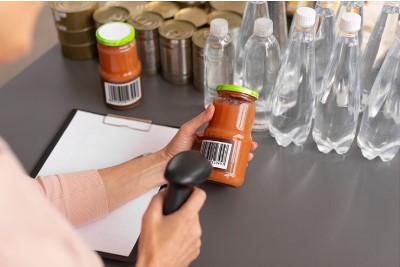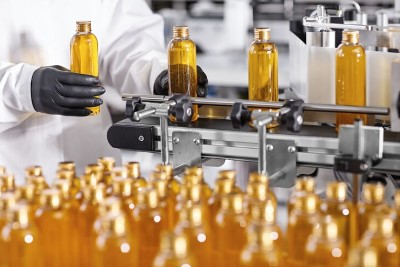
The Growth of Private Label Products in the Halal Industry
In the ever-evolving landscape of the Halal industry, a captivating phenomenon has taken center stage—the significant rise of private label products. This captivating surge not only redefines consumer preferences but also unveils an extraordinary tapestry woven with cultural nuances, market dynamism, and the unbridled spirit of Halal excellence.
What are private label products?
Private label products are products that are manufactured by one company but sold under the brand name of another company whether as generic store brands or as well-known brands we are familiar with. These products are specifically developed to meet the needs and preferences of their target market, whether they are Halal or non-Halal consumers seeking ethical and sustainable options.
The Rising Trend of Private Labels in the Halal Market
The Halal market has witnessed a rising trend in the adoption of private label products. With the increasing demand for Halal products, retailers are recognizing the potential of private label brands to cater to this specific consumer segment. Private label Halal products provide retailers with the opportunity to offer a diverse range of products under their own brand name, thereby strengthening their brand identity and positioning in the market. By leveraging the Halal certification, private label brands can tap into the growing Halal consumer base and establish a loyal customer following.
Factors Influencing the Growth of Private Label Halal Products in the Halal Industry
Several factors have contributed to the growth of private label Halal products in the Halal industry. Firstly, the increasing awareness and demand for Halal-certified products among Halal consumers have created a niche market that private label brands can tap into. The affordability and accessibility of private label Halal products have made them an attractive choice for consumers. As private label brands consistently deliver high-quality Halal-certified products, consumers develop trust and loyalty towards these brands. This trust factor, combined with the affordability and accessibility of private label Halal products, has fueled their growth in the Halal industry.
Importance of Halal Certification for Private Label Products
Imagine sitting in your favorite armchair, sipping a cup of flavored brew from a neat-looking coffee container labeled with your favorite store or product brand's logo. Admirable, right? But as a Halal consumer, how confident would you be about the Halal status of that brew? In short, yes, Halal certification is crucial for private label products. It ensures Halal consumers that their religious dietary requirements are not violated, thus nurturing trust between the consumer and the manufacturer. It also creates a wider market for many brands. Without it, businesses miss out on a significant portion of the global consumer market.
Halal certification involves a thorough evaluation of both the product and the production facility to determine their compliance with Halal standards. Islamic Services of America (ISA) is a leading certification body for Halal products in the United States. ISA ensures that products adhere to Halal dietary laws, offering a trusted symbol of authenticity for Halal consumers.

With rigorous standards, ISA certifies that the production process aligns with Halal requirements, providing assurance and transparency in the marketplace.
Challenges and Solutions for Private Label Halal Products
While the growth prospects for private label Halal products are promising, but they also face several challenges in the Halal industry:
Challenges:
- Ensuring the integrity of Halal certification across the supply chain.
- Establishing strong partnerships with manufacturers committed to Halal standards.
- Navigating complex certification processes and varying requirements in different countries.
Solutions:
- Collaborating closely with Halal certification bodies and industry experts.
- Building strong partnerships with manufacturers who understand and implement robust quality control measures.
- Thoroughly understanding and navigating the regulatory landscape in each market of operation.
In the tapestry of challenges faced by private label Halal products, strategic solutions not only surmount obstacles but also weave a narrative of authenticity and cultural sensitivity.

Benefits of Private Label Products in the Halal Industry
By diving into the Halal market with private label products, retailers win over conscious consumers, gaining trust, and enjoying the creative freedom of branding. It's a double win, and here's why:
- Unique Brand Identity: Private label Halal products let companies stand out, building a distinct brand that resonates with consumers and fosters loyalty.
- Control over Pricing: Companies with private labels have the upper hand in setting prices, ensuring larger profit margins and a competitive edge in the market.
- Cost Savings for Consumers: Private label Halal products often come at a lower price point, making quality Halal options more accessible to a broader audience.
- Reassurance through Certification: Partnering with reputable Halal certifying bodies ensures authenticity, providing consumers with peace of mind about the product's adherence to Halal guidelines.
- Market Differentiation: Private labels help companies differentiate themselves, offering a variety of Halal products and meeting the needs of consumers who crave authenticity and diversity.
Future Prospects of Private Label Halal Products in the Halal Industry
The adoption of private label Halal products is expected to increase as retailers recognize the potential of this segment and invest in developing their own Halal product lines. With advancements in technology and manufacturing and process, private label brands can offer innovative and high-quality Halal products that meet the evolving needs and preferences of consumers.

Furthermore with the, rise of e-commerce and online platforms provides private label brands with new avenues to reach consumers and expand their market presence. The convenience and accessibility of online shopping make it easier for consumers to discover and purchase private label Halal products, thereby driving the growth of this sector.
In the blossoming landscape of the Halal industry, the future for private label products appears promising and vibrant. As brands align with dynamic consumer demands, the Halal private label market stands poised for growth, akin to flowers blooming in spring. With a focus on sustainability, digital innovation, and niche markets, private labels offer companies a chance to establish a unique identity. The future of private label products in the Halal industry is bright, beckoning businesses to leave their mark in this thriving market.
Islamic Services of America (ISA) is a leading USA based Halal certification and auditing organization serving companies, the community, and the Halal industry for nearly 50 years. Contact ISA at isa@isahalal.com to Halal certify your products or visit the ISA website for more information at https://www.isahalal.com/

